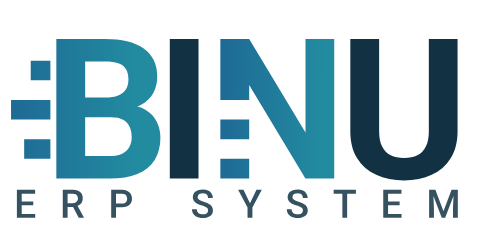Table of Contents
- Introduction
- What is a Manufacturing Resource Planning System?
- What Should an ERP System Include?
- ERP Software for Manufacturing Management
- Production Planning and its Importance
- Creating Efficient Production Schedules
- ERP Production Management Tools
- Best ERP Software for Manufacturing Business
- ERP in Discrete and Process Manufacturing
- Conclusion of the Article
- Frequently Asked Questions (FAQ)
Introduction
Manufacturing Resource Planning (MRP) System is at the heart of industries worldwide (like for example automotive), transforming raw materials into valuable products. As a production planning tool. For manufacturers to succeed, efficient planning is vital, and that’s where a MRP system comes into play. This system helps businesses streamline processes, allocate resources wisely, and optimize production cycles.
With the evolving nature of technology and manufacturing, businesses are looking for ERP (Enterprise Resource Planning) solutions tailored specifically for manufacturing. This article delves into what makes an MRP system effective, how it integrates with ERP software, and why businesses should adopt these systems to remain competitive.
Whether you’re a small manufacturer or a large enterprise, this guide will walk you through everything you need to know about manufacturing resource planning, highlighting key features, best practices, and the benefits of incorporating ERP into your production process. How erp software for manufacturing management can help your business for the future.
What is a Manufacturing Resource Planning System?
A manufacturing resource planning (MRP) system is a tool designed to manage and coordinate all the schedules, and production activities within a manufacturing business. Initially developed to control inventory levels and manage production schedules, modern MRP systems have evolved into complex tools that integrate with ERP software for a complete business solution. An erp planning manufacturing overview.
In manufacturing, resource planning systems are essential for automating tasks like:
- Forecasting demand
- Managing inventory levels
- Scheduling production runs
- Ensuring that materials and human resources are in place when needed
Modern MRP systems also provide a high level of visibility, allowing managers to monitor real-time performance and make data-driven decisions to optimize processes.
For more in-depth details on ERP systems that can cater to various manufacturing needs, visit the Binu ERP homepage to see our ERP system and how it works.
What Should an ERP System Include?
When implementing an ERP system for manufacturing, certain features are crucial to ensure the system meets the unique needs of the business. Here’s what an ERP system should include:
- Inventory Management: The system should track stock levels, monitor supply chain activities, and forecast inventory needs.
- Production Planning: The ERP should provide tools to forecast demand, manage production schedules, and optimize workflows.
- Financial Management: ERP software should integrate accounting features, enabling real-time tracking of expenses, income, and financial forecasts.
- Quality Control: Ensuring that finished products meet specific quality standards is essential for maintaining a good reputation.
- Reporting and Analytics: Dashboards, reports, and analytics are essential for providing business leaders with the information they need to make informed decisions.
For manufacturers, adopting an ERP system that includes these features is critical to remain competitive. To explore more on how ERP systems enhance manufacturing processes, check the guide on ERP system features for manufacturers.
ERP Software for Manufacturing Management
ERP software for management is designed to integrate all aspects of a manufacturing business into one cohesive system. It brings together:
The main benefit of ERP software for manufacturing management is that it creates a seamless flow of information across departments, ensuring that everyone from the shop floor to the executive suite has access to real-time data. This integration leads to better decision-making, more efficient production runs, and reduced costs.
Read more about options for ERP implementation in manufacturing process here.
Production Planning and Its Importance
Production planning is a key part of resource planning systems. It involves forecasting demand, scheduling production activities, and managing resources efficiently. In manufacturing, having an accurate production plan can help:
- Minimize waste
- Ensure materials are available when needed
- Keep production on schedule
- Maximize output
ERP software integrates production planning with other aspects of the business, enabling manufacturers to create a holistic view of their operations. This integration ensures that production plans align with business goals, leading to higher efficiency.
For more detailed insights into production planning, read about the Binu ERP Software here.
Creating Efficient Production Schedules
Creating a production schedule is a complex task that requires coordination between departments. In a manufacturing setting, production schedules ensure that machinery, labor, and materials are all available at the right times to meet demand.
A well-structured ERP system will help manufacturers optimize their production schedules by offering tools for:
- Real-time scheduling adjustments
- Managing workforce shifts
- Ensuring machine availability
- Balancing production loads
ERP software provides a clear overview of resources, enabling manufacturers to quickly adapt to changes in demand or production capabilities. An efficient production schedule reduces downtime, improves on-time deliveries, and increases overall productivity.
ERP Production Management Tools
ERP production management tools form the backbone of any modern operation. These tools help manufacturers:
- Plan and monitor production processes: Real-time tracking of production processes ensures that everything runs smoothly and any issues are addressed promptly.
- Optimize resource allocation: Efficient use of materials, labor, and machinery reduces costs and maximizes output.
- Track production KPIs: Performance metrics such as yield rates, machine uptime, and on-time deliveries are essential for continuous improvement.
The integration of these tools with ERP systems allows manufacturers to make data-driven decisions that improve overall production efficiency.
To explore how ERP production management tools can benefit your business, read the Binu ERP modules here.
Best ERP Software for Manufacturing Business
Choosing the best ERP software for a manufacturing business or the right enterprise resource planning vendors can be a very big task. There are several key features that businesses should consider when evaluating manufacturing erp software:
- Customization: The ability or need to customize the system to meet specific manufacturing needs for process or the company.
- Scalability: The software should be able to grow with the business, whether you’re a small startup or a large enterprise.
- Integration: Seamless integration with existing tools and systems such as accounting software, CRM systems, or supply chain management software.
- User-Friendliness: An intuitive interface is essential for ensuring quick adoption by employees.
Top ERP systems like Binu ERP provide manufacturers with a comprehensive solution that scales with business growth. To learn more about how Binu ERP can support your needs, visit the Binu ERP homepage to understand what our system can do or if our system works with your industry. We try to simplify ERP to make a complete manufacturing process for small to medium sized businesses. As would maybe suggest for new ERP users or companies that want to start using a ERP system for manufacturing.
You can also read our article about best ERP systems here.
Conclusion of the Article
Manufacturing resource planning systems, when integrated with software (ERP manufacturing) with the tools they need to streamline operations, reduce costs, and increase profitability. Whether it’s production planning, inventory management, or financial forecasting, ERP systems play a vital role in optimizing manufacturing processes.
Manufacturers looking to stay competitive should consider implementing an MRP system as part of their overall ERP solution. With the right ERP software, businesses can gain real-time insights, automate key processes, and achieve operational excellence.
If you want to try an ERP System to see how it works, you can try our demo for free here.
Binu ERP is a option for ERP software for small manufacturing business.
Frequently Asked Questions (FAQ)
- What is a manufacturing resource planning system?
- It is a tool that helps businesses manage schedules, and production activities within a manufacturing operation.
- What should an ERP system include?
- It should include inventory management, production planning, financial management, quality control, and reporting features.
- How does ERP software benefit manufacturers?
- ERP software integrates various business processes, providing real-time data and optimizing production workflows.
- What is production planning?
- It involves forecasting demand and creating a production schedule that ensures resources are used efficiently.
- How do ERP systems create production schedules?
- ERP systems use data from multiple departments to create real-time, adaptive production schedules.
- What are ERP production management tools?
- These are tools within an ERP system that help manage and monitor production processes, resources, and KPIs.
- Which is the best ERP software for manufacturing?
- The best ERP software is one that offers customization, scalability, integration, and user-friendly features, such as Binu ERP.
- How can ERP systems improve production efficiency?
- By providing real-time insights, optimizing resource allocation, and streamlining production processes.
- What is the role of ERP in discrete manufacturing?
- ERP in discrete manufacturing focuses on managing production processes where individual products are created.
- Where can I find more information on ERP systems for manufacturing?
- You can find more details on the Binu ERP website.
- You can find more details on the Binu ERP website.

